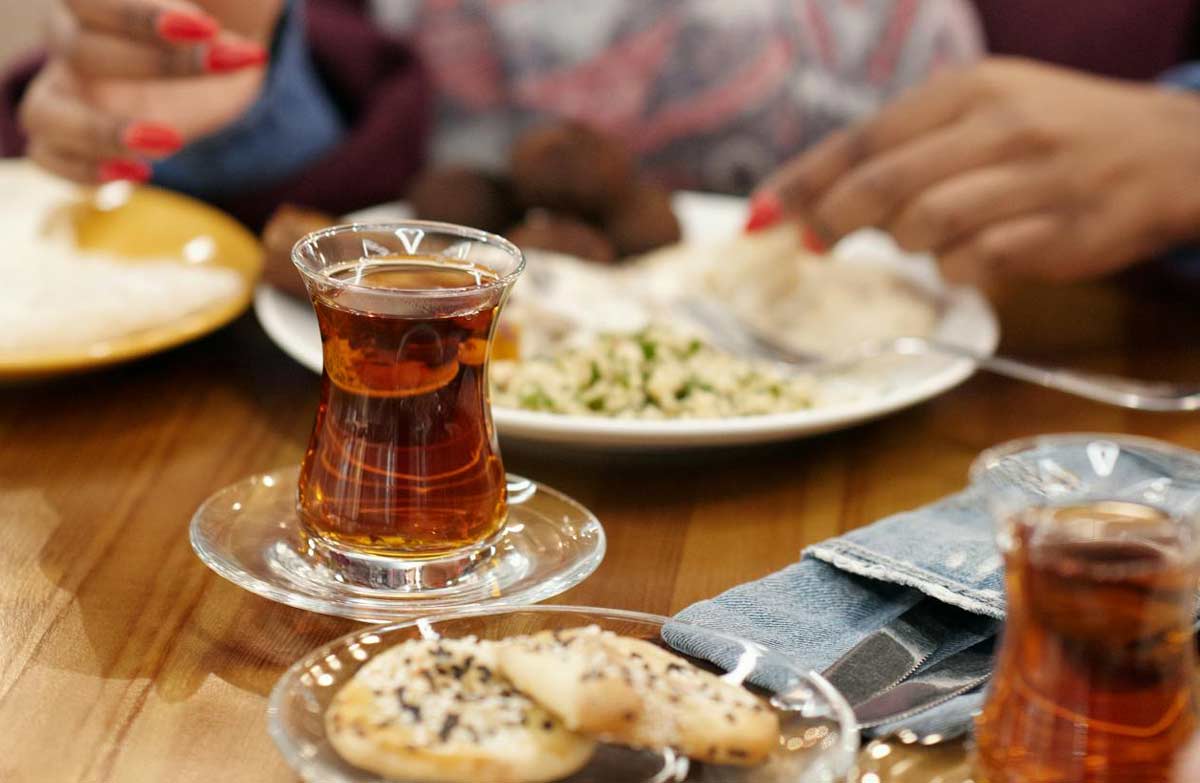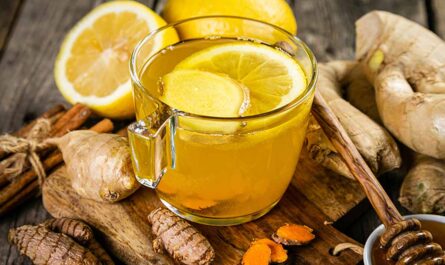Have you ever heard the gentle simmer of a teapot brewing a comforting cup of herbal tea? Imagine that same soothing aroma wafting through the air during the holy month of Ramadan. For many individuals observing this sacred time, herbal teas have become a popular companion throughout the fasting period. Fasting teas during the holy month of Ramadan requires some attention.
This article delves into the world of fasting teas during Ramadan, exploring their potential benefits, navigating potential drawbacks, and offering a step-by-step guide for their responsible use. We aim to equip you with the knowledge to make informed choices while embarking on your Ramadan journey.
Demystifying Ramadan: A Celebration of Faith and Well-being
Ramadan, a cornerstone of the Islamic faith, is a month dedicated to spiritual reflection, prayer, and acts of charity. During this time, Muslims abstain from food and drink from dawn to dusk. While the focus is primarily on spiritual growth, maintaining physical well-being throughout the fast remains paramount.
Core Principles and the Importance of Hydration
Fasting serves as a powerful reminder of gratitude and empathy for those less fortunate. However, extended periods without fluids can lead to dehydration, and fatigue, and hinder the ability to fully observe the spiritual aspects of Ramadan. Therefore, staying adequately hydrated is crucial, and this is why many turn to the world of herbal teas.
Nutritional Considerations: Embracing a Balanced Approach
While the primary source of nourishment comes from pre-dawn and post-sunset meals (Suhoor and Iftar), some individuals incorporate specific teas during the fasting period. It’s important to remember that teas are not a substitute for food and shouldn’t be solely relied upon to meet daily nutritional requirements.
However, certain herbal teas can offer additional benefits, promoting a sense of well-being and potentially aiding digestion during this time of altered dietary patterns. Let’s delve deeper into the different types of teas and navigate their potential advantages and limitations.
The Allure of Fasting Teas: A Market Overview
As the holy month of Ramadan approaches, many individuals seek methods to support their well-being during the fasting period. Fasting teas have emerged as a popular option, promising various benefits like increased energy, weight management, and improved digestion. Let’s delve into the world of these commercially available blends and explore what they offer.
Types and Ingredients
Fasting teas come in a dazzling array, each boasting unique combinations of herbs, spices, and botanical extracts. Some popular ingredients include:
- Green Tea: Renowned for its energizing properties due to the presence of caffeine, green tea also boasts antioxidants that may contribute to overall well-being.
- Peppermint: This refreshing herb can help soothe occasional stomach discomfort and promote a sense of fullness.
- Dandelion Root: Often touted for its diuretic properties, dandelion root may aid in mild water retention.
- Ginger: A common culinary staple, ginger is known for its ability to settle nausea and ease occasional digestive troubles.
- Senna Leaf: This ingredient acts as a laxative, but it’s crucial to note that it should be used cautiously due to potential side effects.
Marketing Claims: A Closer Look
It’s important to approach the claims made by fasting tea companies with a discerning eye. While some ingredients might offer genuine benefits, it’s essential to remember:
- Weight Management: While certain teas might promote a feeling of fullness or aid digestion, they are unlikely to be a magic solution for weight loss. Sustainable weight management requires a holistic approach that combines healthy eating habits and regular physical activity.
- Detoxification: Our bodies have remarkable built-in systems for detoxification. While some herbs might support these processes, relying solely on tea for detoxification is unrealistic and unnecessary.
Remember, maintaining a well-balanced diet and staying hydrated remain the cornerstones of a healthy lifestyle during Ramadan and beyond.
Unveiling the Science: Potential Benefits of Fasting Teas
While the allure of fasting teas is undeniable, it’s crucial to understand the science behind their purported benefits. Here’s a closer look at some common ingredients:
Focus on Specific Ingredients
-
Herbal Diuretics: Dandelion root, for instance, might offer mild diuretic properties, potentially aiding the body in flushing out excess fluids. However, it’s vital to emphasize responsible use. Overconsumption of diuretics can lead to dehydration and electrolyte imbalance, which can be detrimental during a fasting period.
-
Herbal Laxatives: Senna leaf, another popular ingredient, acts as a laxative, stimulating bowel movements. While it might provide temporary relief from constipation, its use should be limited due to potential side effects like cramping, dehydration, and disrupting the body’s natural digestive rhythm.
-
Spices and Herbs: Ginger and cinnamon are popular additions to fasting teas and for good reason. Ginger is known for its ability to settle nausea and ease occasional indigestion, while cinnamon can help regulate blood sugar levels. However, it’s important to remember that these benefits are most pronounced when consumed as part of a healthy diet and not as a standalone solution.
Limited Research
It’s crucial to acknowledge that a significant portion of the claims made by fasting tea manufacturers lack robust scientific backing. While some ingredients might hold promise, extensive research is needed to definitively determine their effectiveness and safety, particularly in the context of prolonged fasting. How AI, ChatGPT maximizes earnings of many people in minutes
Seeking Expert Advice
Consulting a healthcare professional or registered dietician is vital before incorporating any new supplement or herbal remedy into your routine, especially during Ramadan. They can provide personalized guidance based on your individual health needs and ensure that any chosen teas complement your fasting practices safely and effectively.

Navigating the Potential Downsides of Fasting Teas
While herbal teas can be a delightful addition to your Ramadan practice, it’s important to be mindful of potential drawbacks:
Mind Your Medications
Some herbal teas might interact with medications, potentially causing unintended side effects or reducing the effectiveness of your prescribed drugs. Think of it like playing a game of telephone – sometimes, different messages (supplements and medications) can get jumbled up if not communicated clearly. This is why it’s essential to consult your doctor or pharmacist before incorporating any new teas, especially if you’re already taking medication. They can advise you on potential interactions and ensure a safe and healthy approach to your Ramadan routine.
Staying Hydrated is Key
Fasting can naturally lead to some dehydration, especially during the warmer months. Certain herbal teas might have diuretic properties, meaning they increase the body’s production of urine. While this can sometimes feel like a quick way to shed water weight, it’s crucial to prioritize proper hydration throughout your fast. Motivation – Mind – Success – Thinking – Productivity – Happiness
Imagine your body as a beautiful garden. Water acts like a lifeblood, nourishing your cells and keeping everything functioning smoothly. When dehydration sets in, it’s like the garden starts to wilt. To avoid this, prioritize water-rich beverages alongside your teas. Think refreshing mint tea, cooling cucumber water, or even slices of watermelon – all excellent options to maintain a healthy balance.
Laxatives and Dependence
Some herbal teas might contain laxative ingredients. While these might seem appealing for a quick cleanse, relying solely on laxatives can disrupt your body’s natural digestive rhythm and lead to dependence. Business – Money Making – Marketing – E-commerce
Think of your digestive system as a well-oiled machine. Laxatives can act like a temporary jumpstart, but for long-term health, it’s best to focus on a balanced diet rich in fiber. Fruits, vegetables, and whole grains are your allies here, providing the natural fiber your body needs to function smoothly throughout the fast.
A Note on Regulation
The world of herbal supplements can be a fascinating one, filled with a vast array of natural remedies. However, it’s important to acknowledge that the herbal supplement industry is not always subject to the same rigorous regulations as prescription medications.
This means that the quality and consistency of some teas might vary, and there’s a chance of potential contamination. To minimize risks, opt for reputable brands and seek out teas that have undergone independent testing for quality assurance. Health books, guides, exercises, habits, Diets, and more
Remember, a little research goes a long way, especially when it comes to your well-being.
By keeping these potential drawbacks in mind and prioritizing open communication with your healthcare professional, you can navigate the world of fasting teas with a sense of awareness and informed choice.
Striking a Balance: A Guide for Responsible Use
Hydration: The Cornerstone of Well-being
Imagine this: Parched earth desperately craves the life-giving touch of rain. Similarly, our body thrives on adequate hydration, especially during extended periods of fasting. Throughout Ramadan, prioritize water as your primary source of fluids. Carry a reusable water bottle with you, and set gentle reminders to sip regularly. Herbal teas, while refreshing, shouldn’t solely substitute water intake. Fitness – Meditation – Diet – Weight Loss – Healthy Living – Yoga
A Balanced Plate for a Balanced Body
Think of your body as a magnificent garden. To flourish, it needs a diverse range of nutrients. During Ramadan, focus on consuming a well-balanced diet rich in fruits, vegetables, and whole grains during permitted eating periods. These nutrient-dense foods provide your body with the essential building blocks it needs to function optimally throughout the fast.
Consult the Experts: Your Trusted Source of Guidance
Before incorporating any fasting teas into your routine, seeking advice from a qualified healthcare professional is vital. They can provide personalized guidance based on your individual health profile, any underlying medical conditions you might have, and any medications you’re currently taking. Remember, open communication with your doctor is key to ensuring a safe and healthy Ramadan experience. RPM 3.0 – 60% CONVERSION & Money for Affiliate Marketing
Exploring Alternatives: Nature’s Helping Hand
Mother Nature offers a bounty of resources to support well-being during Ramadan. Consider natural methods like consuming small, frequent meals during permitted hours, also known as Suhoor and Iftar. These meals help regulate blood sugar levels and manage hunger pangs effectively. Additionally, incorporating healthy herbal infusions prepared with ingredients like ginger, peppermint, or chamomile can be a soothing and gentle way to aid digestion and promote relaxation.
Remember: Fasting teas can be a complementary element to your Ramadan experience, but they shouldn’t be solely relied upon. By prioritizing adequate hydration, consuming a balanced diet, consulting healthcare professionals, and exploring natural alternatives, you can embark on a healthy and fulfilling Ramadan journey. Tea, Coffee, Energy Drinks, Juice, Beverage, Smoothie, and more
Additional Resources
- Consult your local health department or trusted medical professional for personalized guidance.
- Reliable online resources from government health organizations can provide valuable information.
- Consider seeking guidance from registered dietitians or nutritionists for personalized dietary advice.
Disclaimer: This information is for educational purposes only and should not be construed as medical advice. Always consult with a qualified healthcare professional before making any changes to your diet or consuming herbal teas, especially if you have any underlying health conditions.
Other Interesting Articles
- 21 Health Benefits of Chai Green Tea: Recipe, Side Effects
- 22 Proven Health Benefits of Drinking Milk Daily At Night
- Hidden Disadvantages of Drinking Milk for Skin: 11 FAQs
- 22 Chai Tea Health Benefits, Recipe, Time, Side Effects
- 22 Milima Tea Health Benefits, Recipe, Time, Side Effects
- 22 Irish Breakfast Tea Health Benefits, Recipe, Side Effects
- 20 Rukeri Tea Health Benefits, Recipe, Time, Side Effects
- 19 Darjeeling Black Tea Health Benefits, Recipe, Side Effects
- 19 Panyang Congou Tea Health Benefits, Recipe, Side Effects
- Black Tea vs Milk Tea: 15 Benefits and 10 Side Effects
- 20 Side Effects of Drinking Ginger Tea in Empty Stomach
- 20 Silent Disadvantages of Drinking Milk with Turmeric
- 24 Benefits of Drinking Milk Everyday During Pregnancy
- 20 Hidden Disadvantages of Drinking Lemon Water Daily
- Black Tea vs Normal Tea: 15 Benefits and 10 Side Effects
- Best Time to Drink Milk: Seniors, Adults, Weight Loss, Muscle
- 21 Keemun Tea Health Benefits, Recipe, Time, Side Effects
- 10 Great Health Benefits of Drinking Hot Tea in the Morning
- 23 Lapsang Souchong Tea Health Benefits, Side Effects
- 21 Probable Disadvantages of Drinking Tea in Paper Cups



